
Oncology leaders and pharma representatives discuss collaboration best practices.

Oncology leaders and pharma representatives discuss collaboration best practices.

Not only did taletrectinib shrink tumors in 92% of patients who were tyrosine kinase inhibitor -naïve, but 89.5% of patients continued to respond to treatment at 12 months.

Compared to endocrine therapy alone, the combination of ribociclib and endocrine therapy lowered the risk of cancer recurrence in patients with early breast cancer by 25.2%.

Subcutaneous nivolumab had demonstrated noninferiority of Cavgd28, Cminss, and ORR compared to the intravenous form of treatment.

Areas of focus for specialty medications include biosimilars, cancer treatments, and drugs across disease states such as inflammatory conditions, HIV, and multiple sclerosis.

Medically integrated dispensing specialty pharmacies can connect patient medical and pharmacy records to improve medication adherence and help patients to safely stay on them for longer.

Bimekizumab is a novel, humanized monoclonal IgG1 antibody that potently and selectively neutralizes both IL-7A and IL-17F, which are key cytokines driving inflammatory processes in plaque psoriasis.

According to the authors, identifying the degree of disagreement with physicians’ deprescribing recommendations can improve the communication among older adults and their physicians.
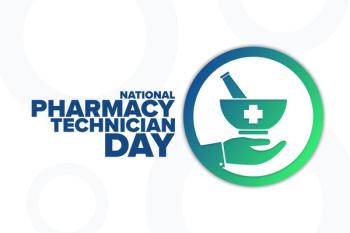
Pharmacy Technician Day celebrates the myriad contributions of the unsung heroes of health care.
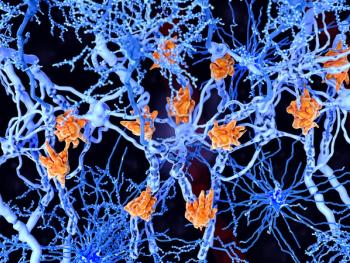
A subcutaneous injection of ocrelizumab was markedly effective at suppressing brain lesions in patients with multiple sclerosis, according to data from a phase 3 trial.

Karline Peal, MBA of Vanderbilt Ingram Cancer Center discusses the positive impact technology has had in health care and how it can be implemented in the future.

Although education and training have historically been considered the primary factors influencing pay, the survey results challenge this notion.

A single-center experience at a tertiary medical center precision medicine clinic provides insight.

Community pharmacies are ideal locations to identify and recruit underrepresented patients for clinical trials.

In the first systematic review using statistical methods, investigators found switching from a reference biologic to a biosimilar was comparable in safety, but no conclusion on immunogenicity could be drawn.

The intravenous formulation of secukinumab is administered in monthly 30-minute, weight-based dosing and requires no pre-medication or lab monitoring.

The use of psilocybin, repeated at a low dose, could offer a new form of treatment for individuals with differing forms of mental disorders.

Lack of awareness, cultural beliefs, and physician preferences may influence whether minority patients receive palliative care during metastatic breast cancer treatment.

Although respondents reported no impacts on patient safety, workload significantly increased during the COVID-19 pandemic and led to major burnout challenges.

Nedosiran (Rivfloza; Novo Nordisk Inc) injection is designed to inhibit the expression of liver enzyme lactate dehydrogenases leading to oxalate overproduction in patients 9 years of age and older with PH1.

Craig Dolan, PharmD, MBA, BSPharm discusses the role of the pharmacist, how the pharmacy profession has changed, and what is to come in the field.

Expert explains how the role of pharmacists in myelofibrosis treatment has evolved significantly over the past decade.
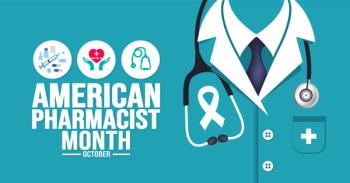
The origins of American Pharmacists Month trace back to October 1925, when radio stations nationwide aired special programming for a week to spotlight the pharmacy profession.

The most persuasive reason for industry-academia collaboration is the many opportunities it opens for pharmacy students who may not have considered all the ways they can use their PharmD to serve the cause of humankind.
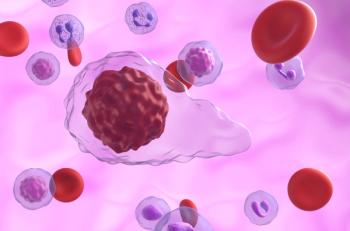
Ruben A. Mesa, MD, FACP, discusses the results of the SIMPLIFY-1 and MOMENTUM trials and how the data led to the approval of momelotinib to treat intermediate or high-risk myelofibrosis in adult patients with anemia.

The National Community Pharmacists Association said the action was sent into motion by wrongful penalties for Medicare Part D prescriptions, called pharmacy direct and indirect remuneration fees.
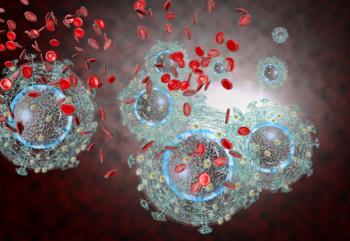
The hydrogel injection has had a lasting drug concentration of 42 days with almost no adverse effects.
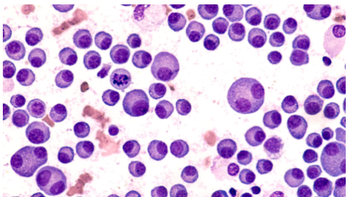
Most patients had improved clinical response within 90 days of receiving the dendritic cell vaccine and ASCT.

Physical symptoms of burnout can include headaches, digestive problems, sleep disturbances, and increased susceptibility to illnesses due to a weakened immune system.

AI is able to quickly analyze, identify, and route data for investigation.